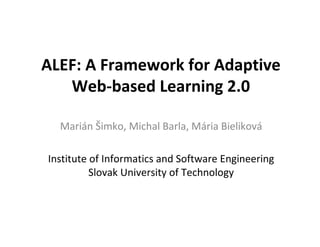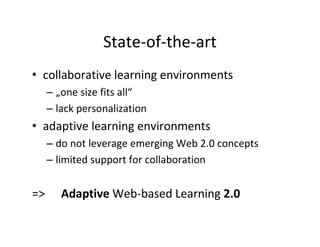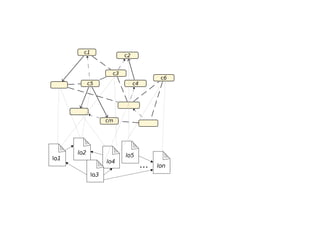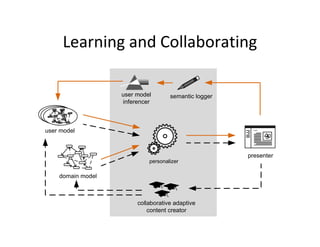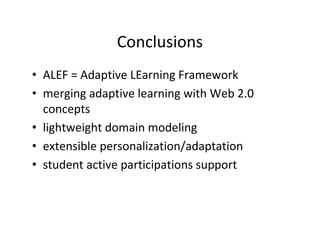ALEF: A Framework for Adaptive Web-based Learning 2.0
- 1. ALEF: A Framework for Adaptive Web-based Learning 2.0 Marián Šimko, Michal Barla, Mária Bieliková Institute of Informatics and Software Engineering Slovak University of Technology
- 2. State-of-the-art • collaborative learning environments – „one size fits all“ – lack personalization • adaptive learning environments – do not leverage emerging Web 2.0 concepts – limited support for collaboration => Adaptive Web-based Learning 2.0
- 5. ?
- 6. Adaptive Web-based Learning 2.0 • principles: – simplified domain modeling – extensible personalization and course adaptation – student active participation in a learning process • addressed by: ALEF: Adaptive LEarning Framework
- 7. ALEF domain model core User Content Annotation
- 8. ALEF domain model core User Content Annotation Learning Concept Tag object Blog Comment
- 9. Two activity flows • Learning • Creating/Collaborating
- 10. Learning and Collaborating user model semantic logger inferencer user model presenter personalizer domain model collaborative adaptive content creator
- 11. Learning and Collaborating user model semantic logger inferencer user model presenter personalizer domain model collaborative adaptive content creator
- 12. Learning and Collaborating user model semantic logger inferencer user model presenter personalizer domain model collaborative adaptive content creator
- 14. Conclusions • ALEF = Adaptive LEarning Framework • merging adaptive learning with Web 2.0 concepts • lightweight domain modeling • extensible personalization/adaptation • student active participations support
